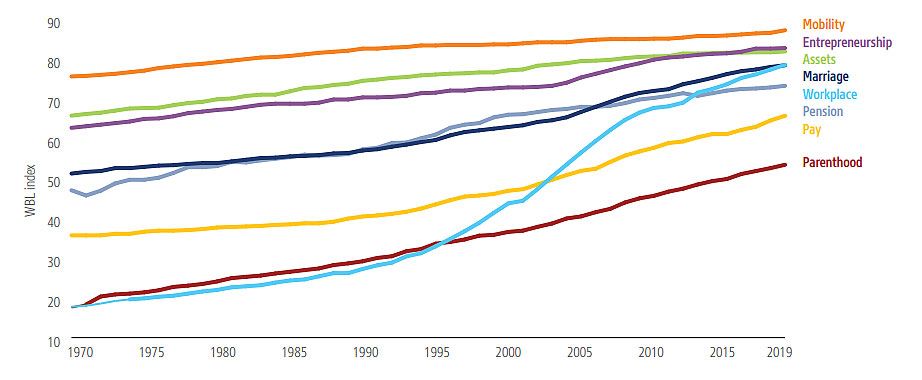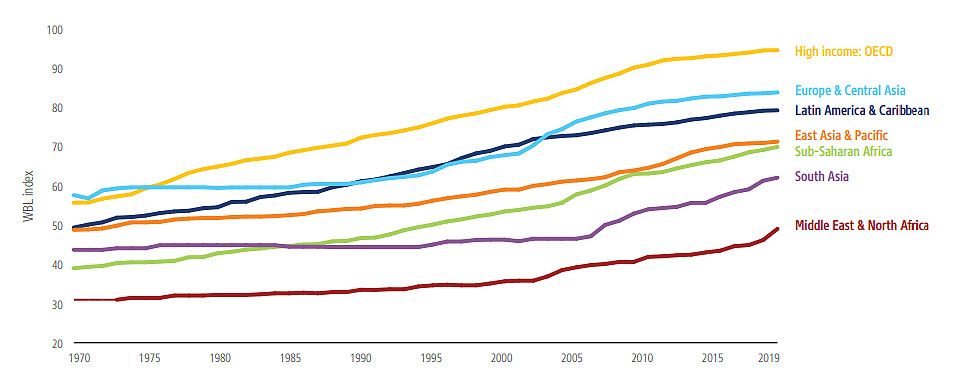
⚖️ The world's women are getting better protection from the laws of their countries
There are still great differences between the countries of the world in terms of women's rights and opportunities, but in the last 50 years equality has increased in all regions.
Share this story!
There is still a lot to do to get us into a world where women and men are completely equal, but we are on the right track. An example of this is that since 1970, 1,571 legal reforms that increase women's rights and opportunities have been implemented around the world.
The World Bank that has investigated how laws and regulations in 190 countries help or support women's opportunities to live equally. The World Bank looks at a number of criteria in eight areas. Here, for example, there are criteria such as women's rights in marriage, how easy it is for men and women to start a business, and how it works with parental leave.

All this is compiled into an index where 100 is the maximum. In 1970, the world average was 46.5. In 2019, the figure was at 75.2.
Looking more recently, the index increased from 73.9 in 2017 to 75.2 last year.

There are still major differences between different countries. Sweden, for example, is at the top and, together with seven other countries, has an index figure of 100. On the other side of the scale we have countries and areas such as Sudan, Yemen and the West Bank and Gaza, all of which are below 30.
So there is much left to do to get equal communities, but the trend is clear that women are gaining more rights and opportunities in all regions. Something that is good for both the women and the communities in which they live.
"Legal rights for women are both right in themselves and good for the countries' economy. When women can move freely, work outside the home and control their own finances, it is more likely that they will become part of the workforce and thus contribute to strengthening the country's economy," says David Malpass, chairman of the World Bank.